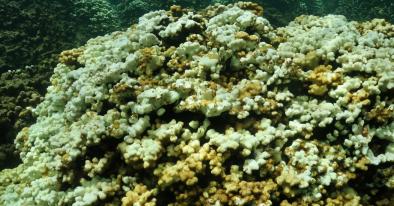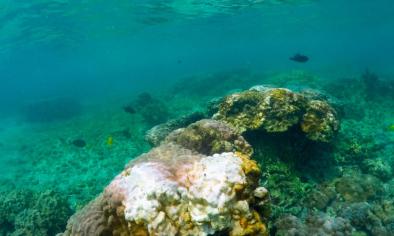Science Source
Model-based assessment of the role of human-induced climate change in the 2005 Caribbean coral bleaching event
- States that episodes of mass coral bleaching around the world in recent decades have been attributed to periods of anomalously warm ocean temperature
- States that in 2005, the sea surface temperature (SST) anomaly in the tropical North Atlantic that may have contributed to the strong hurricane season caused widespread coral bleaching in the Eastern Caribbean
- Uses two global climate models to evaluate the contribution of natural climate variability and anthropogenic forcing to the thermal stress that caused the 2005 coral bleaching event
- Historical temperature data and simulations for the 1870–2000 period show that the observed warming in the region is unlikely to be due to unforced climate variability alone
- Simulation of background climate variability suggests that anthropogenic warming may have increased the probability of occurrence of significant thermal stress events for corals in this region by an order of magnitude
- Finds that under scenarios of future greenhouse gas emissions, mass coral bleaching in the Eastern Caribbean may become a biannual event in 20–30 years
- States, however, that if corals and their symbionts can adapt by 1–1.5°C, such mass bleaching events may not begin to recur at potentially harmful intervals until the latter half of the century
- Concludes that the delay could enable more time to alter the path of greenhouse gas emissions, although long-term “committed warming” even after stabilization of atmospheric CO2 levels may still represent an additional long-term threat to corals
Related Content
Headline

Apr 1, 2020 | The Guardian
Climate crisis may have pushed world's tropical coral reefs to tipping point of 'near-annual' bleaching
Headline

Mar 23, 2020 | The Guardian
Great Barrier Reef watchers anxiously await evidence of coral bleaching from aerial surveys
Headline

Oct 21, 2019 | The New York Times
A New Marine Heat Wave Threatens Hawaii’s Reefs
Headline

Sep 24, 2019 | Washington Post
Hawaii coral show signs of stress amid record-setting heat


